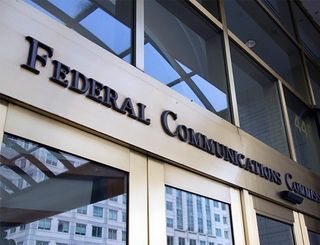MMTC, NABOB Join Court Challenge to FCC Quadrennial Review

The Multicultural Media, Telecom and Internet Council (MMTC) has joined with the National Association of Black Owned Broadcasters (NABOB) to file a court challenge to the FCC's quadrennial media ownership rule reviewapproved by a commission majority in July, specifically its decision not to extend the 1992 procurement rule to "all communications and high-tech industries.
They brand that inaction "arbitrary and capricious, an abuse of discretion, or otherwise not in accordance with the law and as agency action unreasonably delayed or withheld."
Congress in the 1992 Cable Act requires cable operators to encourage participation by minorities and women in all parts of their organizations. MMTC wanted that requirement to extend across the board and asked the FCC to make that part of its quadrennial review.
Related: NAB Sues FCC Over Quadrennial Review
“Despite representations to the Third Circuit that the FCC Chairman would address this issue in a manner that would allow it to be resolved [in August], the FCC has once again punted the issue,” MMTC and NABOB stated in their petition to the U.S. Court of Appeals for the D.C. Circuit.
They also point out that four former Democratic FCC chairs were enthusiastic backers of extending the rule.
“The Commission’s failure to extend its Cable Procurement Rule across all telecommunications platforms is illogical and incompatible with Congressional mandate,” said MMTC president Kim Keenan in a statement. "The FCC has an obligation to move policy forward that stimulates ownership diversity. Yet, with diversity dwindling in telecommunications ownership, the Commission has let another opportunity for minority- and women-owned businesses to compete for billions of dollars in procurement slip away.”
Broadcasting & Cable Newsletter
The smarter way to stay on top of broadcasting and cable industry. Sign up below
Related: Newspapers Sue FCC Over Media Ownership Decision
In an exchange with FCC chairman Tom Wheeler earlier this year, Rep. Yvette Clarke (D-N.Y.), who had also urged the FCC to extend the rule, noted that the FCC's quadrennial review had not included the MMTC proposal and asked Wheeler if he would commit to extending the rule across all platforms as a recognition of what she called self-evident industry convergence.
Wheeler said the FCC faced a "real challenge" under the Supreme Court's strict scrutiny standard of such policies in the Adarand decision and added that if there was a way that challenge could be addressed and that threshold overcome, he was interested in hearing about it.
That window has likely closed with the election of Republican Donald Trump and Wheeler's ramping down of his regulatory agenda.
Contributing editor John Eggerton has been an editor and/or writer on media regulation, legislation and policy for over four decades, including covering the FCC, FTC, Congress, the major media trade associations, and the federal courts. In addition to Multichannel News and Broadcasting + Cable, his work has appeared in Radio World, TV Technology, TV Fax, This Week in Consumer Electronics, Variety and the Encyclopedia Britannica.

